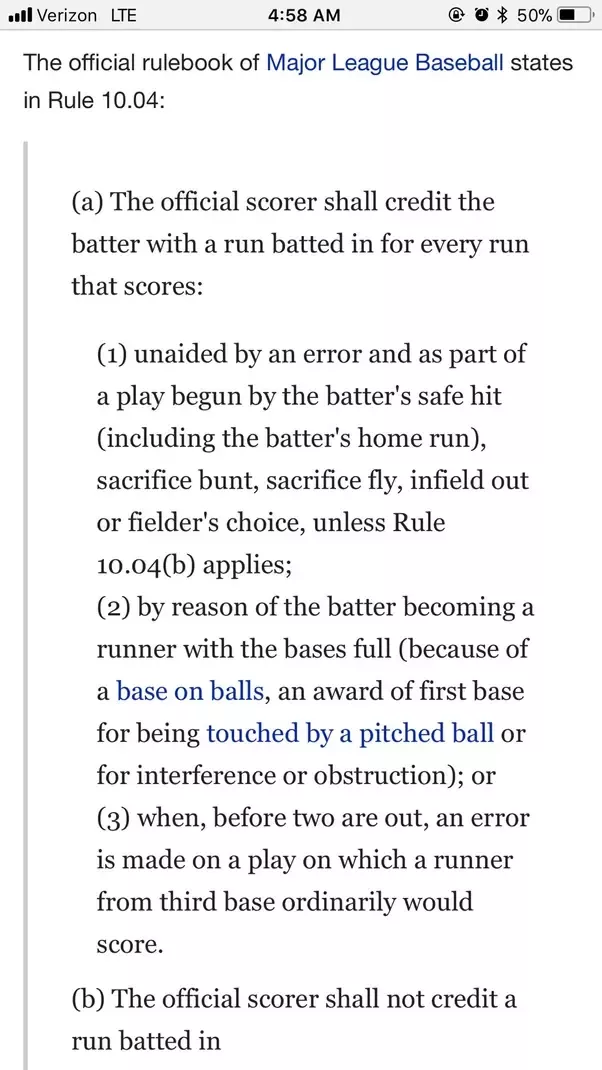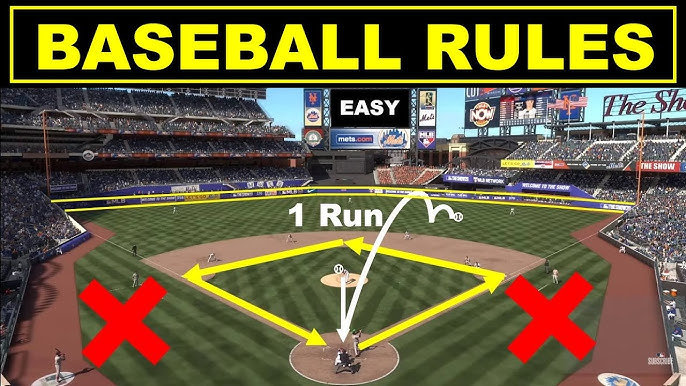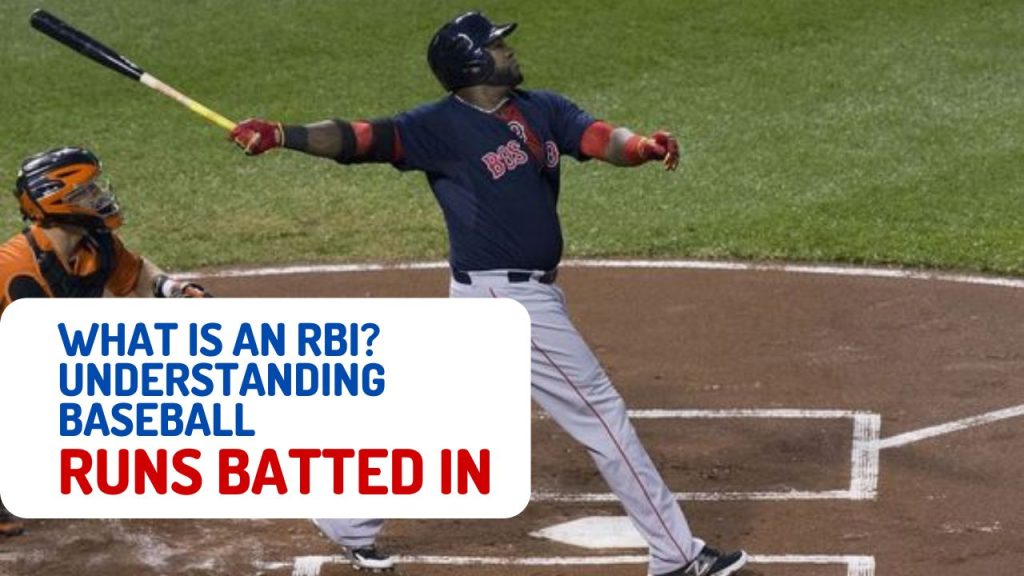Now, you might be wonderin’ if a batter gets an RBI when there’s an error on the field. Well, let me tell ya, it ain’t as simple as just havin’ the ball thrown wrong. You see, in baseball, the way an error works can change whether a batter gets credit for an RBI or not. Lemme break it down for ya, nice and simple.
First off, an RBI stands for “Run Batted In.” This is when a batter gets credit for driving in a run, usually when a feller or gal on base crosses home plate after they hit the ball. So, if a batter hits the ball and the feller on third base runs home, that’s a good ol’ RBI for the batter. But, and here’s the kicker, if the run scores ‘cause of a mistake by the fielders, like an error, then things get a little tricky.

See, if a batter hits the ball, but then the defense messes up—maybe they throw the ball away or fumble it—then it might allow a runner to score. But, the batter don’t always get an RBI for that. That’s right, even if the run comes across the plate, if it’s because of an error, the batter ain’t gonna get credit for drivin’ in that run. The official scorekeeper won’t mark down an RBI in that case.
When Does a Batter Get an RBI on an Error?
Now, don’t go thinkin’ that all errors mean no RBI. That’s not quite right. If the run woulda scored anyway, even without the error, then the batter might still get an RBI. Let’s say there’s a runner on third and the batter hits the ball deep into the outfield. Now, the outfielder goes to catch the ball but drops it—yep, that’s an error. But the runner on third would’ve scored anyway ‘cause the hit was deep enough. In that case, the batter gets an RBI.
But here’s the important part: if the error was the whole reason the run scored, like the fielder threw the ball away and the runner took advantage of that mistake, then the batter don’t get no RBI. The official rules say that runs that score due to errors, wild pitches, passed balls, or even a balk by the pitcher don’t count as RBIs for the batter.
When Can a Batter Not Get an RBI?

There are other situations where the batter don’t get an RBI, even if a run scores. For example:
- If the batter hits into a double play and a run scores, no RBI for the batter. The defense made the play, not the batter.
- If the pitcher throws a wild pitch or there’s a passed ball, and that lets a runner score, no RBI. That’s considered an error by the pitcher or catcher.
- If there’s a balk by the pitcher, and a runner scores from that, no RBI for anyone.
It’s kinda a funny rule, ain’t it? You’d think if the batter hit the ball and the run scored, they’d get credit, but the rules are a bit more complicated than that. Errors mess things up a lot when it comes to RBIs.
What About Walks and Hit-By-Pitches?
Now, there’s one time when a batter can get an RBI without hittin’ the ball at all. If the bases are loaded, and the batter gets walked or hit by a pitch, then an RBI gets credited to them. That’s ‘cause the batter made a contribution to the run by gettin’ on base and pushin’ that runner home. So, don’t think you gotta hit the ball to get an RBI—sometimes just standin’ there is enough!
Final Thoughts

So, to sum it up, a batter usually don’t get an RBI when a run scores due to an error. But if the run woulda scored even without the error, then the batter might still get credit. Baseball rules sure can be a bit tricky, but once ya understand ‘em, it all makes sense. Just remember, it’s all about whether the defense messed up or if the batter did enough to drive in the run.
Next time you’re watchin’ a game and someone scores after an error, just think back on what we talked about, and you’ll know if that batter deserves an RBI or not. It’s all about the rules, my friend!
Tags:[RBI, Baseball Rules, Errors, Baseball Scoring, Run Batted In, Baseball Mistakes, Baseball Scoring Rules]











